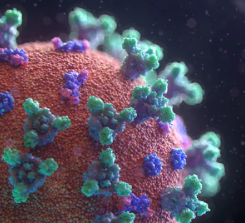Trump, the virus: How not to handle crisis
History sometimes unfolds badly as it is being written. This is the case with President Trump, his administration, and how they are handling the crisis of the coronavirus, or Covid-19.
He and they are not doing a good job.

The Trump Administration in this crisis has had numerous spokespeople: the president, designated point person Vice President Mike Pence, disease expert Dr. Anthony Fauci at the National Institutes of Health, and various public policy and health experts.
Trump’s main concern about the crisis has been political. Many of his public responses have been geared to stopping the freefalls of stock market indexes so he doesn’t “look bad.” Instead, his public pronouncements, some of which contradict his own policy experts, have contributed to making market reactions worse.
In his speech from the Oval Office March 11, the president read a prepared speech from a Teleprompter. Yet he, or his speechwriters, made three major misstatements that had to be later corrected by Trump, in a tweet, or by his aides. The next day the Dow Jones dropped more than 2,300 points, or 10 percent.
A poor handling of crisis communications contributes to economic fallout. Ask any corporation, university or nonprofit that faced this unpleasant music. Your credibility with the media, and by extension the public, takes major hits.
It is a mistake from which people, or entities, can easily recover. One glaring solution: Let your subject-matter expert be the point person for the media and the public. Dr. Fauci is perfect.